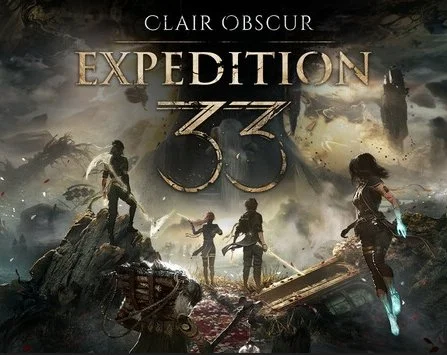Digital Dilemmas: Can Narrative Games Like The Walking Dead and Life is Strange Teach Emotional Maturity and Moral Reasoning?
In a world where digital media increasingly shapes how young people think and feel, it may be time to reconsider what counts as “homework.” What if, instead of reading Lord of the Flies or writing essays about ethical dilemmas, students were assigned to play them — through narrative-driven games like The Walking Dead or Life is Strange? These interactive experiences already function as moral laboratories, asking players to make difficult choices, confront consequences, and empathize with virtual others. Perhaps the classroom of the future could harness such games to teach emotional maturity, empathy, and ethics more powerfully than lectures or textbooks ever could.
The Psychology of Interactive Storytelling
Games like The Walking Dead (Telltale Games, 2012) and Life is Strange (Dontnod Entertainment, 2015) differ from typical video games in that they prioritize emotional storytelling over combat or achievement. Players are placed in morally complex situations: choosing whether to save one friend over another, lie to protect someone’s feelings, or decide who eats when supplies run short. Psychologically, these scenarios engage affective empathy — the capacity to feel what another person feels — and cognitive empathy, or the ability to understand another’s perspective.
Unlike film or literature, interactive games give players agency: they are not just observing, but deciding. This decision-making process activates neural pathways associated with moral reasoning and social cognition, making players accountable for the outcomes. When a character dies because of a player’s choice, it is not simply a tragic scene — it is a lesson in consequence and responsibility.
Games as Moral Laboratories
Educational psychologists often emphasize the importance of experiential learning: the idea that people learn best through doing, reflecting, and adapting. Narrative games are, in essence, structured moral simulations. In The Walking Dead, you might have to decide whether to tell the truth to a frightened child about the state of the world, or to lie for comfort — and then watch the emotional consequences unfold. In Life is Strange, players confront themes of bullying, grief, sexuality, and time travel, where even well-intentioned choices can spiral into disaster.
Such experiences mirror real-life moral complexity far better than multiple-choice ethics quizzes. They also invite post-play reflection: discussions about why players made certain decisions and how they felt afterward. This reflective process, especially when guided by a teacher or counselor, could deepen emotional awareness and ethical thinking. Classroom discussions could resemble group therapy sessions, but framed around fiction — allowing emotional distance while maintaining psychological depth.
The Classroom as a Safe Emotional Arena
Imagine a high school psychology class where each week, students play one episode of Life is Strange at home. In class, they discuss their choices: why did they save one friend instead of another? Did they regret rewinding time to undo a painful event? Such dialogue could bridge gaming and moral education, helping students articulate empathy, guilt, compassion, and regret — emotions rarely discussed openly in academic settings.
For teachers, this would provide a structured way to address difficult topics — mental health, sexuality, identity, trauma — through narrative metaphors rather than direct personal disclosure. Games thus become safe emotional arenas where teenagers can experiment with ethical reasoning and emotional self-regulation.
Challenges and Ethical Considerations
Of course, this proposal is not without challenges. Some games include mature themes — violence, suicide, or abuse — which would require sensitive framing and age-appropriate adaptation. Moreover, educators would need training to facilitate such emotionally charged discussions responsibly. There’s also the risk of “gamifying” ethics too literally, where students might treat moral decisions as puzzles to “win” rather than opportunities for reflection.
Yet these challenges mirror those faced by literature and film education. If Romeo and Juliet or The Diary of Anne Frank can be taught with care, so too can interactive stories. The difference is that games invite participation — and with it, emotional accountability.
Simply Put: Toward a New Pedagogy of Empathy
Integrating narrative games into curricula could mark the beginning of a new form of emotional education — one that combines cognitive psychology, storytelling, and digital media. Instead of separating moral development from entertainment, educators could embrace the mediums where young people already live, think, and feel.
When students cry over a virtual character’s death or agonize over a moral choice they can’t undo, they are not just playing. They are practicing empathy, reflecting on ethics, and confronting their own capacity for both kindness and failure. These are the foundations of emotional maturity — learned not through lecture, but through lived experience, even if that experience is digital.
In the end, the question is not whether games like The Walking Dead or Life is Strange can teach empathy and ethics. They already do. The real question is whether our education systems are ready to take play seriously.
BONUS: Example Lesson Plans
Syllabus 1: The Walking Dead — Ethics, Survival, and Empathy
Course Title: Moral Choices in Crisis: The Psychology of The Walking Dead
Duration: 6 Weeks
Target Group: High School (ages 16–18) or Intro-Level College Psychology / Ethics
Course Overview
Students will explore emotional and ethical decision-making through The Walking Dead: Season One. Each week, they will play one episode, record reflections, and participate in guided discussions about moral dilemmas, empathy, and human survival instincts.
Weekly Breakdown
Week 1: Introduction — The Psychology of Choice
In-class: Introduction to moral psychology (Kohlberg’s stages, empathy theory).
Homework: Play Episode 1: “A New Day.”
Discussion Prompt: How do you decide who to trust when everything falls apart?
Week 2: Loyalty and Sacrifice
In-class: Discuss survival ethics — utilitarianism vs. deontology.
Homework: Play Episode 2: “Starved for Help.”
Discussion Prompt: How do hunger and fear influence morality? Would you make the same choices in real life?
Week 3: Group Morality and Leadership
In-class: Explore group psychology and the burden of leadership.
Homework: Play Episode 3: “Long Road Ahead.”
Discussion Prompt: How does power affect moral judgment? What does it mean to lead ethically?
Week 4: Guilt, Forgiveness, and Emotional Resilience
In-class: Discuss empathy fatigue and moral injury.
Homework: Play Episode 4: “Around Every Corner.”
Discussion Prompt: When is forgiveness appropriate in a world full of betrayal?
Week 5: The Final Choice
In-class: Explore endings and emotional closure in narrative psychology.
Homework: Play Episode 5: “No Time Left.”
Discussion Prompt: How do you cope with grief and loss? What did your ending teach you about yourself?
Week 6: Reflection and Assessment
In-class: Students present reflective essays or group presentations analyzing their moral growth through the game.
Homework: Write a final paper — “What The Walking Dead Taught Me About Humanity.”
Learning Outcomes
Demonstrate understanding of moral decision-making under pressure.
Develop empathy and emotional literacy.
Analyze how digital storytelling influences ethical thinking.
Syllabus 2: Life is Strange — Time, Identity, and Consequence
Course Title: The Ethics of Choice and Identity in Life is Strange
Duration: 6 Weeks
Target Group: High School or University Students (Psychology, Media Studies, Ethics)
Course Overview
Through the episodic narrative of Life is Strange, students will examine empathy, responsibility, and emotional maturity. They will discuss themes of time, trauma, identity, and friendship — exploring how even good intentions can have unforeseen consequences.
Weekly Breakdown
Week 1: Setting the Scene — Choice and Consequence
In-class: Intro to narrative psychology and butterfly effect theory.
Homework: Play Episode 1: “Chrysalis.”
Discussion Prompt: What motivates Max’s decisions? How do small actions shape big outcomes?
Week 2: Bullying, Secrets, and Responsibility
In-class: Explore social psychology, cyberbullying, and bystander behavior.
Homework: Play Episode 2: “Out of Time.”
Discussion Prompt: What are the moral limits of intervention? When does helping become control?
Week 3: Truth, Friendship, and Mental Health
In-class: Discuss the ethics of honesty and the portrayal of depression.
Homework: Play Episode 3: “Chaos Theory.”
Discussion Prompt: Is it ever ethical to manipulate someone’s memories or choices for their own good?
Week 4: Time Travel and Moral Ambiguity
In-class: Examine moral relativism and the illusion of control.
Homework: Play Episode 4: “Dark Room.”
Discussion Prompt: How does trauma influence our moral compass?
Week 5: The Final Choice — Individual vs. Collective Good
In-class: Debate utilitarian vs. personal ethics.
Homework: Play Episode 5: “Polarized.”
Discussion Prompt: Would you sacrifice one life to save many? What does your ending say about your values?
Week 6: Reflection — The Ethics of Empathy
In-class: Group discussions and multimedia reflections (journals, video diaries, or essays).
Homework: Write a reflective essay — “If You Could Rewind Time: What Life is Strange Taught Me About Consequences.”
Learning Outcomes
Understand emotional intelligence and moral reasoning in narrative media.
Reflect on identity, responsibility, and empathy through digital storytelling.
Communicate ethical reflections in discussion and writing.





